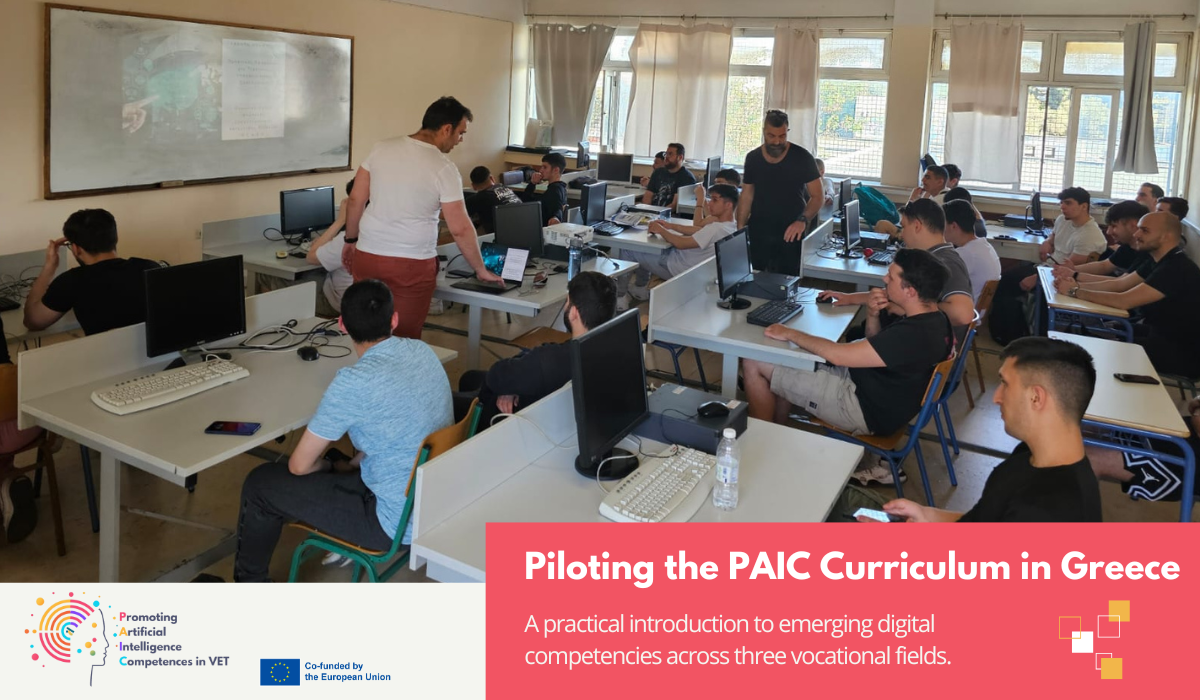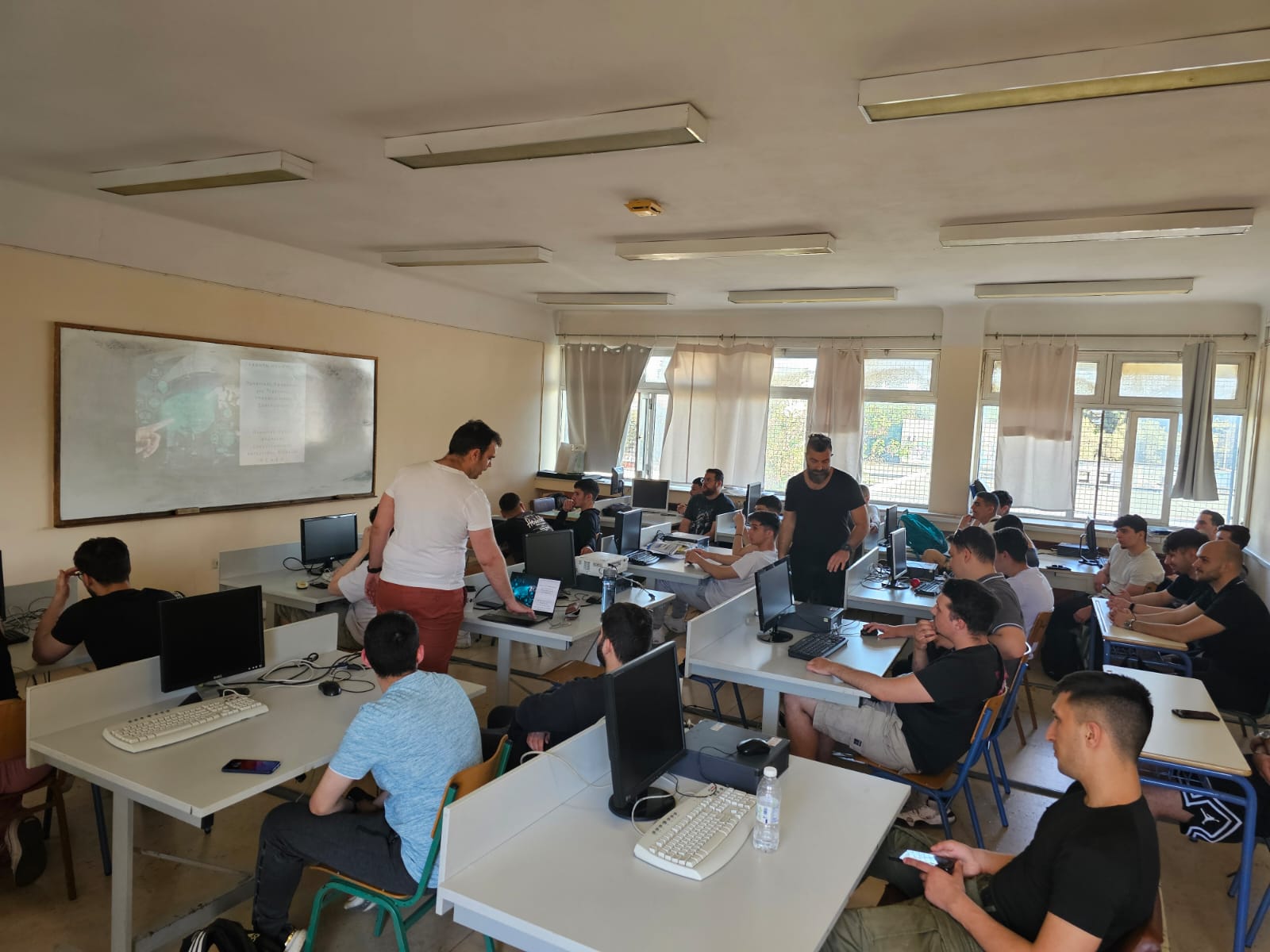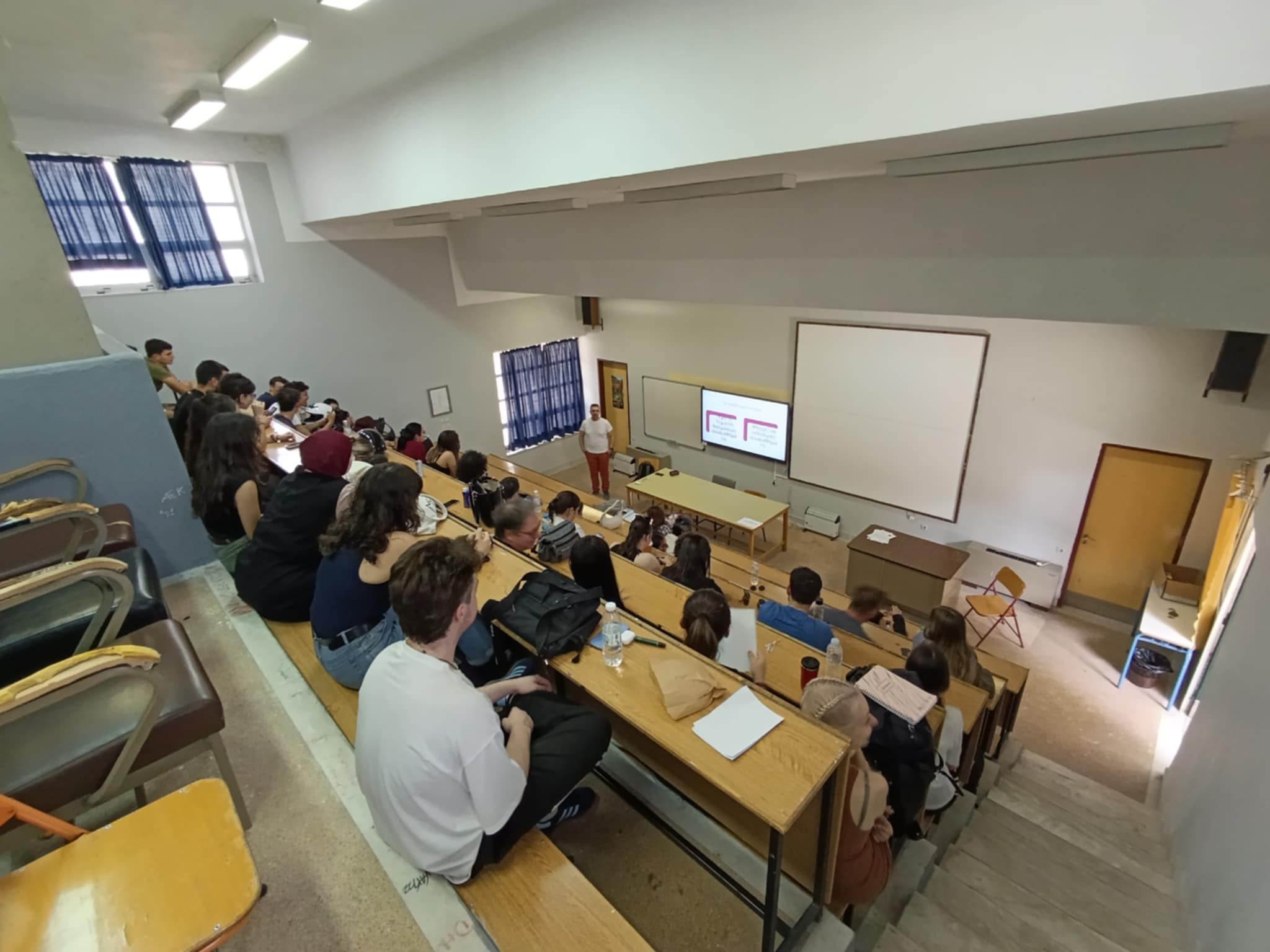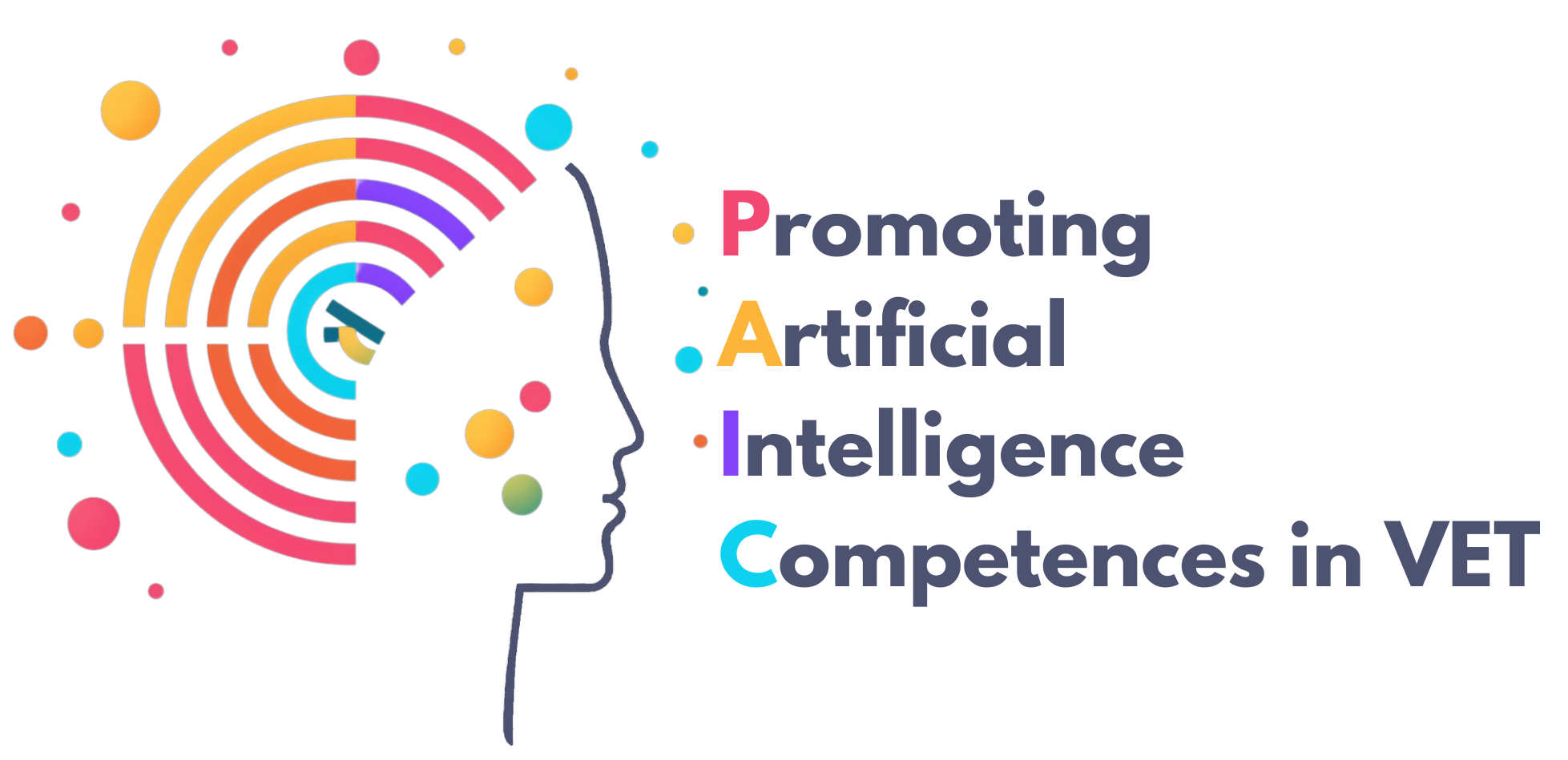Piloting the PAIC Curriculum in Greek VET Classrooms
A practical introduction to emerging digital competencies across three vocational fields.
Μπορείς να διαβάσεις την Ελληνική έκδοση αυτού του άρθρου εδώ.

The PAIC project (Promoting Artificial Intelligence Competences in Vocational Education and Training) aims to modernize vocational education by introducing innovative training programs that reflect the real needs of today’s job market. By integrating emerging competencies into VET curricula, PAIC supports both learners and educators in navigating a rapidly evolving professional landscape.
As part of this initiative, a pilot training was carried out in Athens, Greece, from May 8 to May 23, 2025. The training was organized by the Academy of Entrepreneurship, in collaboration with the Lifelong Learning Centre of Aigaleo (SAEK Aigaleo), the hosting partner for this effort.
The Lifelong Learning Centre of Aigaleo (SAEK Aigaleo), operating under the Greek Ministry of Education, offers high-quality vocational training in diverse technical and creative fields. With a strong emphasis on practical learning, technological literacy, and alignment with labor market needs, SAEK proved to be an ideal partner for piloting the PAIC curriculum. Its diverse student body and modern training infrastructure provided the perfect environment to test sector-specific AI applications and explore how new digital skills can be integrated into everyday vocational practice.
A total of 85 students from three distinct disciplines participated in 7 hours of hands-on training that explored how new technologies can be meaningfully integrated into their profession.
Session 1 – Computer Systems Technician
May 8, 2025 | Trainer: Anastasios Giannaros – Researcher in Blockchain & AI | PhD Candidate in Data Analysis in Digital Governance | Technology Adult Educator
This session introduced students to foundational concepts of Artificial Intelligence, Machine Learning, and Predictive Maintenance in IT systems. The curriculum was tailored to help learners understand how tools like log analysis, AI-powered diagnostics, and chatbots can be applied in areas such as:
-
System administration & troubleshooting
-
Network security and anomaly detection
-
Helpdesk automation using NLP
-
Scripting with tools like GitHub Copilot
Students explored how AI can enhance—rather than replace—their role as technicians, empowering them to solve problems faster and more effectively


Session 2 – Interior Architecture, Decoration & Object Design
May 9, 2025 | Trainer: Anastasios Giannaros – Researcher in Blockchain & AI | PhD Candidate in Data Analysis in Digital Governance | Technology Adult Educator
In this session, learners from creative design disciplines explored how AI tools can support concept development, interior visualization, and 3D modeling. They were introduced to user-friendly platforms such as:
-
RoomGPT, ReimagineHome, and Planner 5D for space transformation – Researcher in Blockchain & AI | PhD Candidate in Data Analysis in Digital Governance | Technology Adult Educator
-
InteriorAI for stylistic inspiration
-
Canva Magic Studio for AI-powered portfolio creation
Rather than replace human creativity, these tools were shown to enhance design ideation, speed up the prototyping process, and improve communication with clients.
Session 3 – Marketing in E-commerce
May 23, 2025 | Trainer: Alexandros Sainidis – Knowledge Manager for EU Funded Projects
Focusing on the fast-evolving landscape of digital marketing and online commerce, this session helped learners understand how AI is already shaping:
-
Customer behavior analysis & personalization
-
Campaign optimization through platforms like Google Ads
-
Content creation using tools like ChatGPT, Jasper, and Canva
-
Sentiment analysis and brand monitoring
Students worked with real-world examples and discovered how marketers today rely on intelligent automation to improve performance and customer experience
Looking Forward
This pilot was not only an educational activity—it was an opportunity to bring VET learners closer to the technologies shaping their industries. The training was well-received, with participants expressing strong interest in the tools presented and how they connect to their career paths.
Thanks to the fruitful collaboration between the Academy of Entrepreneurship and the Lifelong Learning Centre of Aigaleo (SAEK Aigaleo), the Greek pilot of PAIC provided valuable insights that will help refine the curriculum and ensure it remains aligned with both industry needs and learners’ realities.
We would especially like to thank Mr. Dimitris Kyriakos, Director of SAEK Aigaleo, for his warm support and active facilitation of the piloting process. His contribution was essential in creating a welcoming environment for innovation, knowledge-sharing, and meaningful engagement with students and educators alike.
ℹ️ For any further inquiries, feel free to contact us at secretariat@akep.eu.
Follow us to stay tuned about the project’s news.



